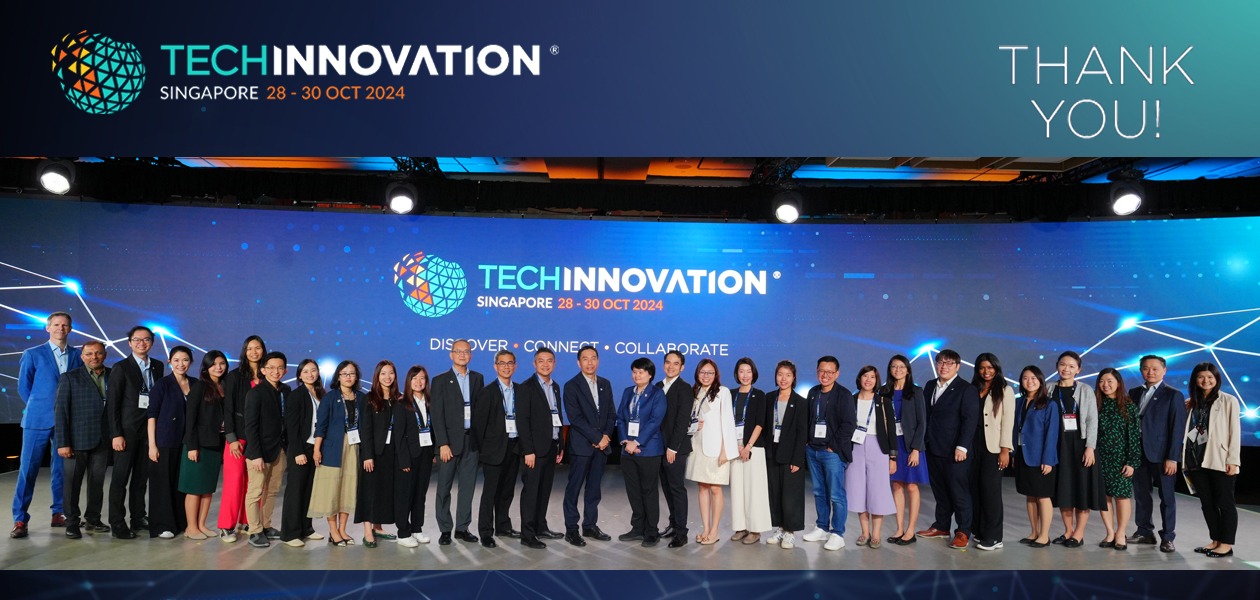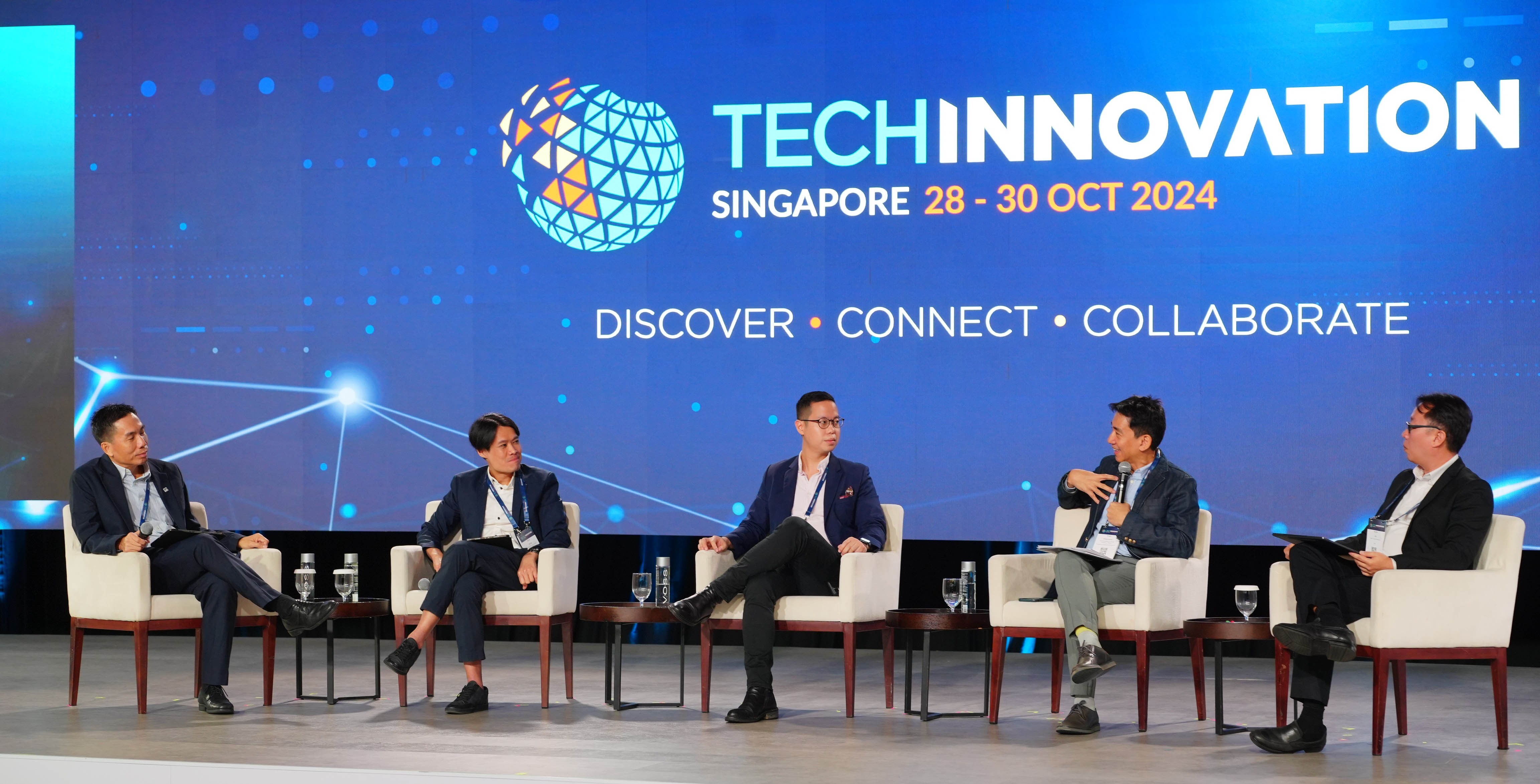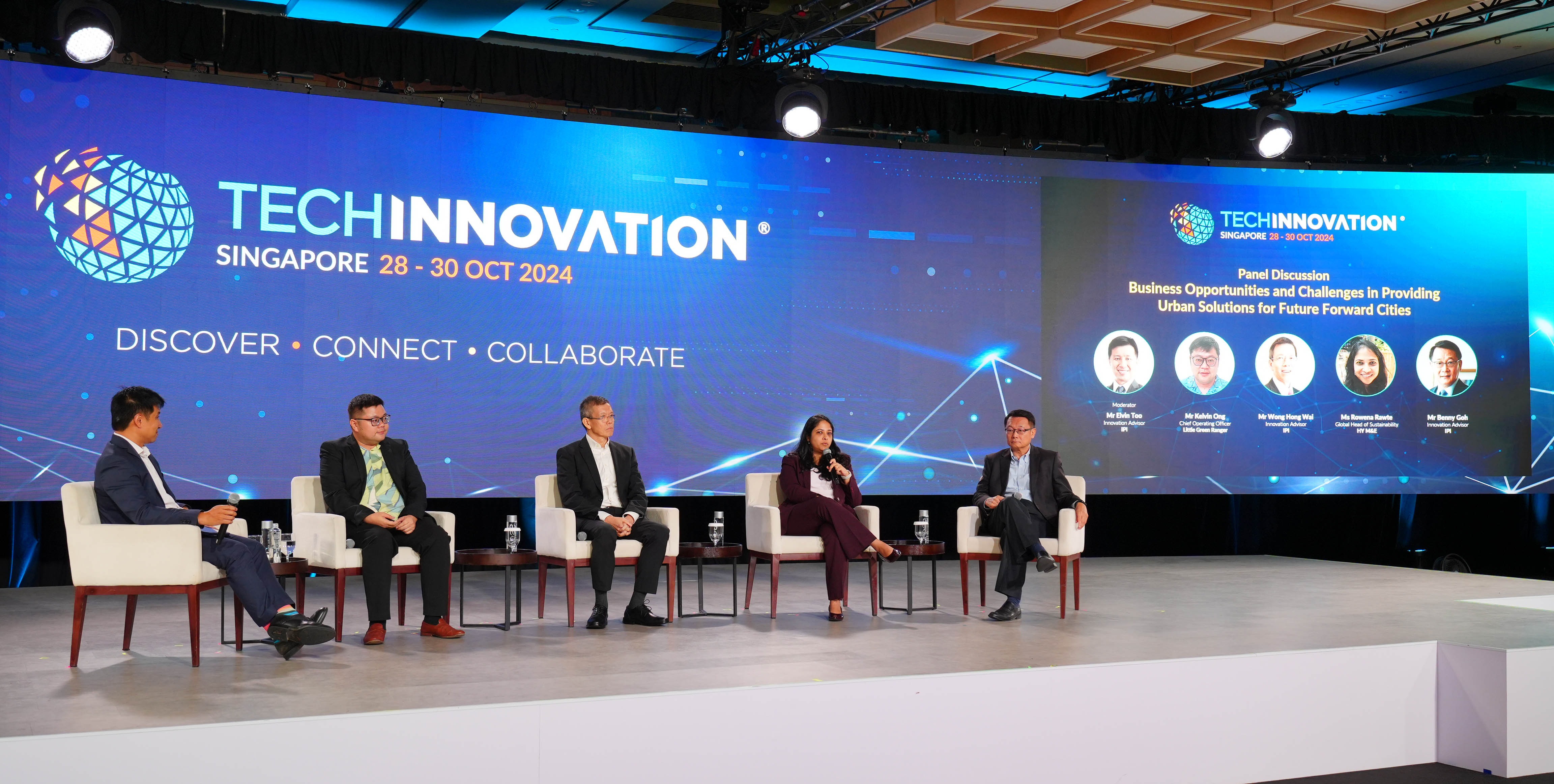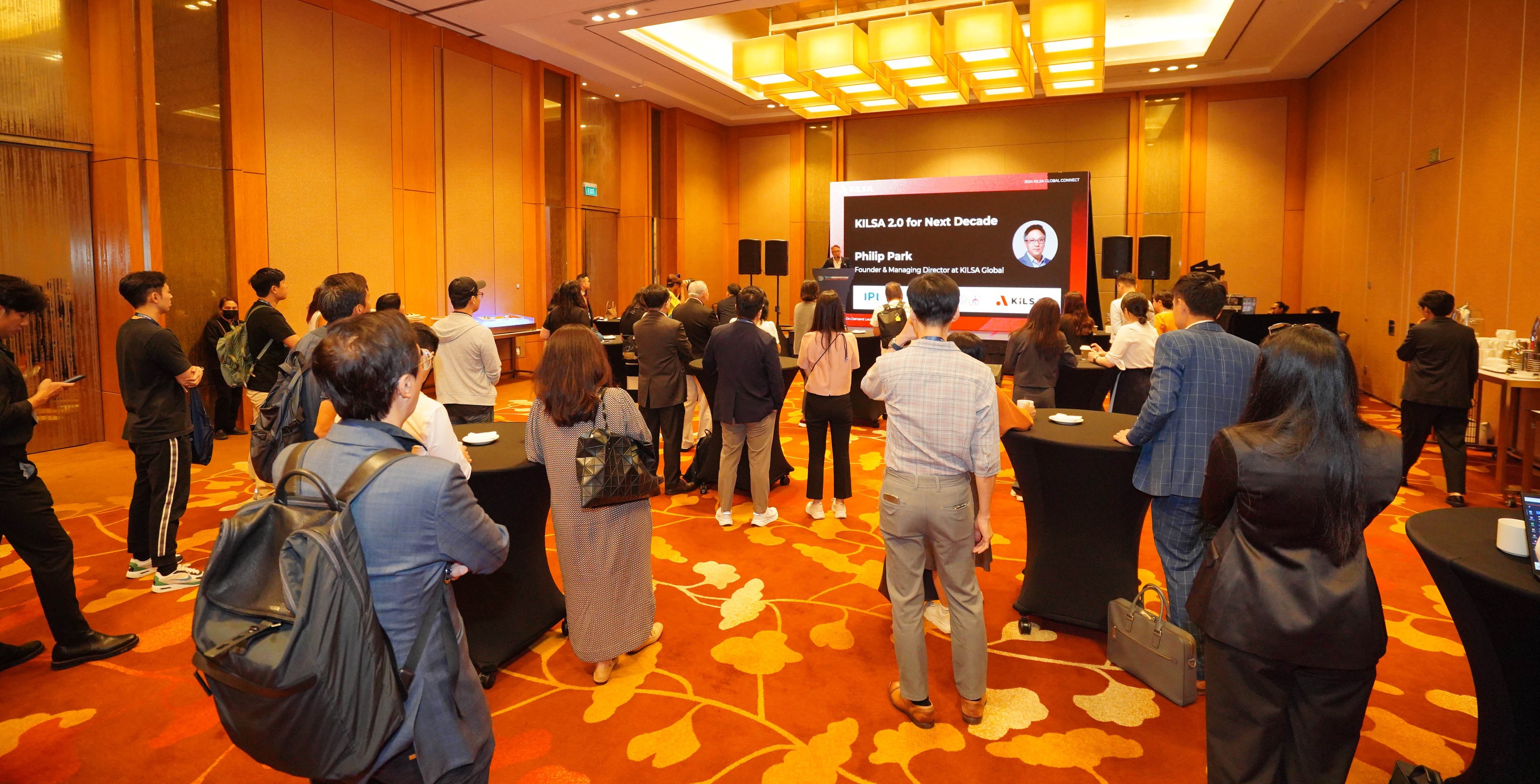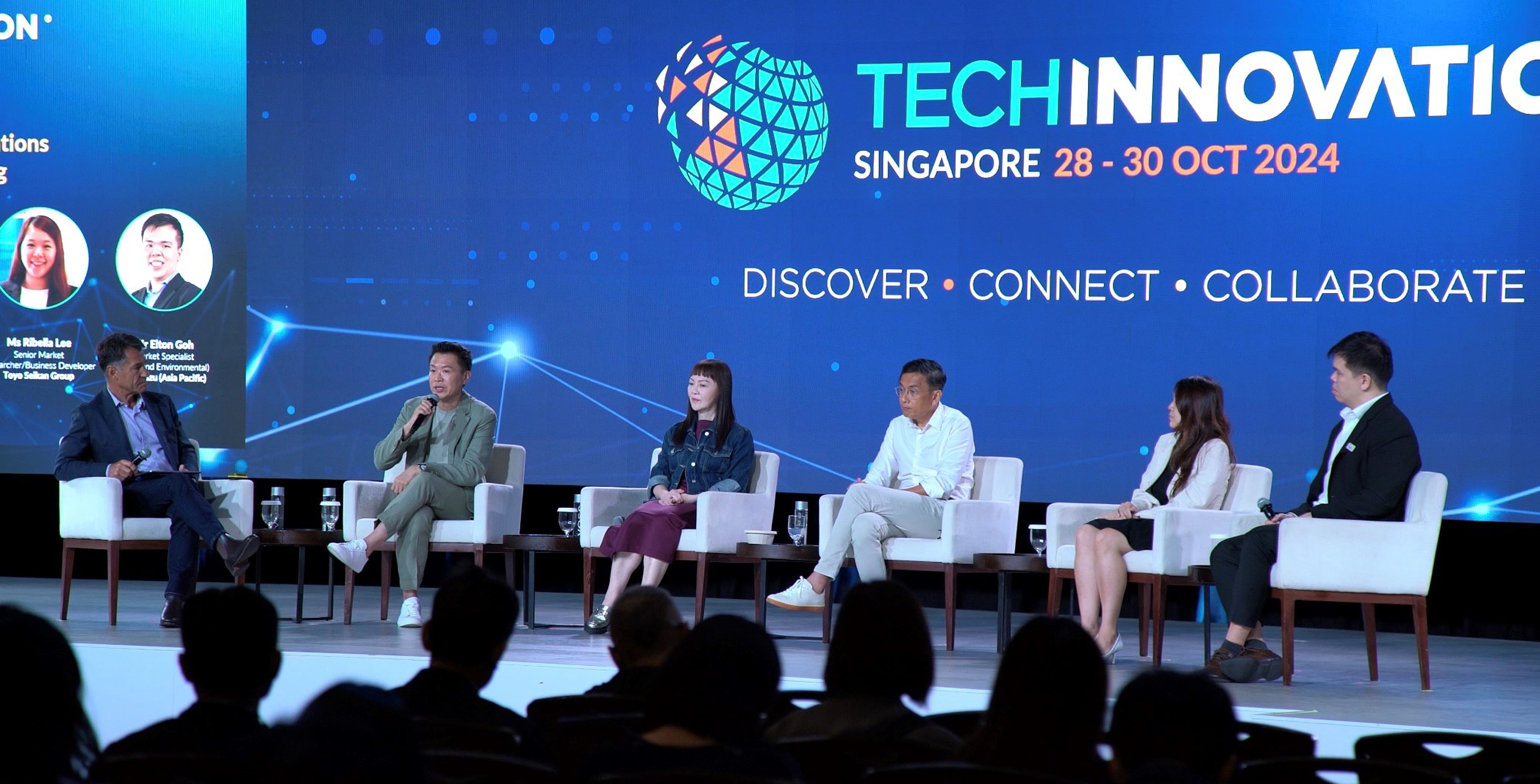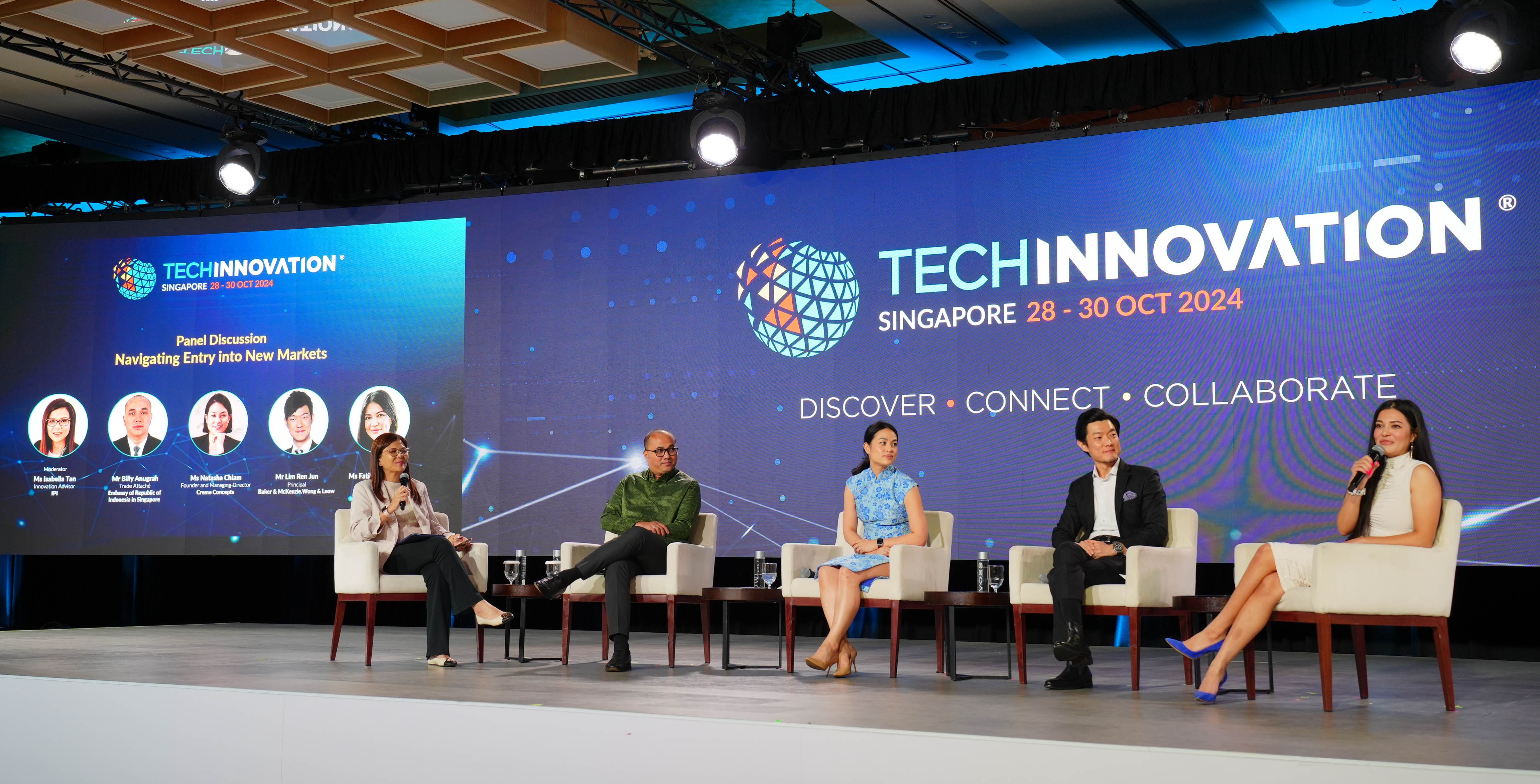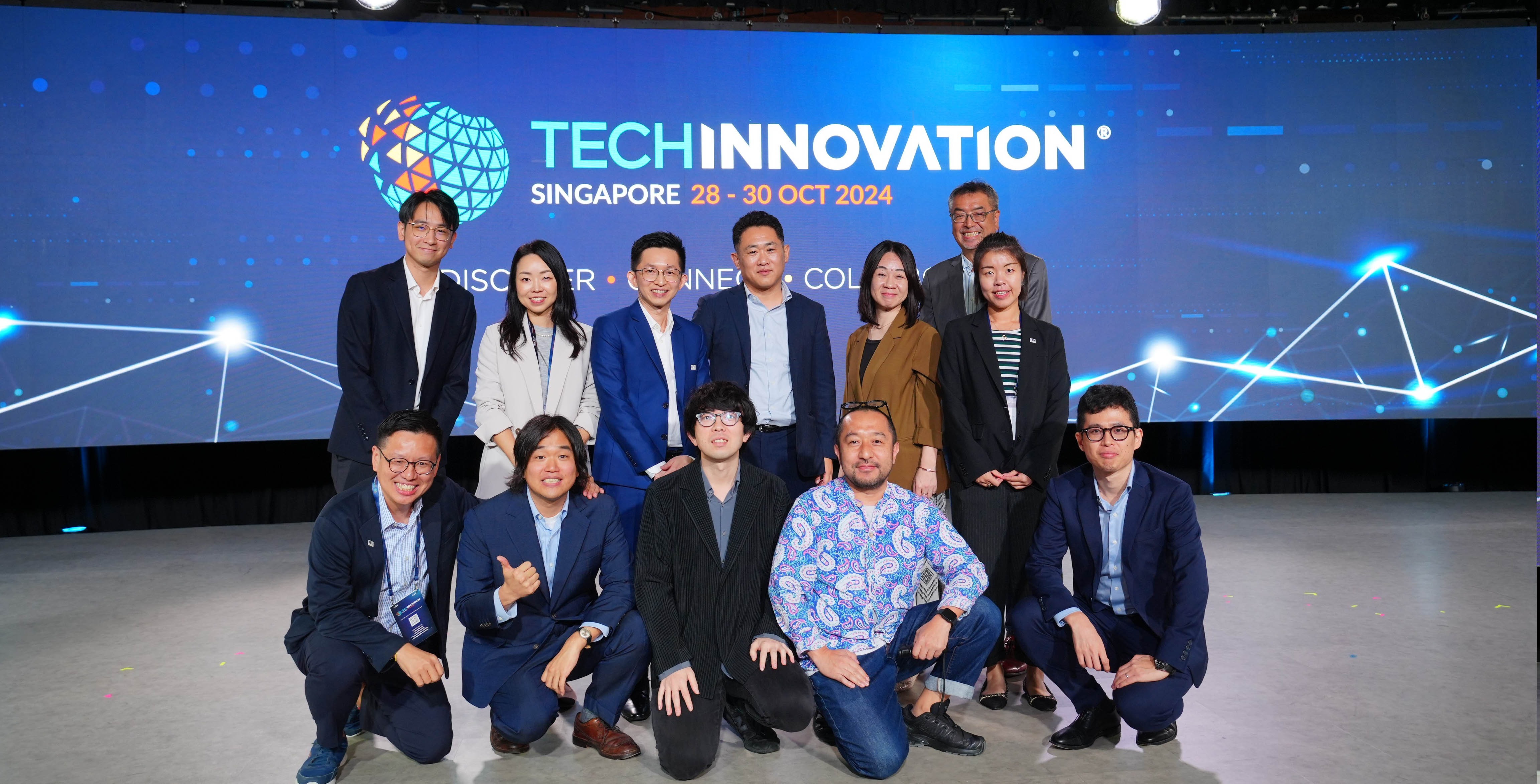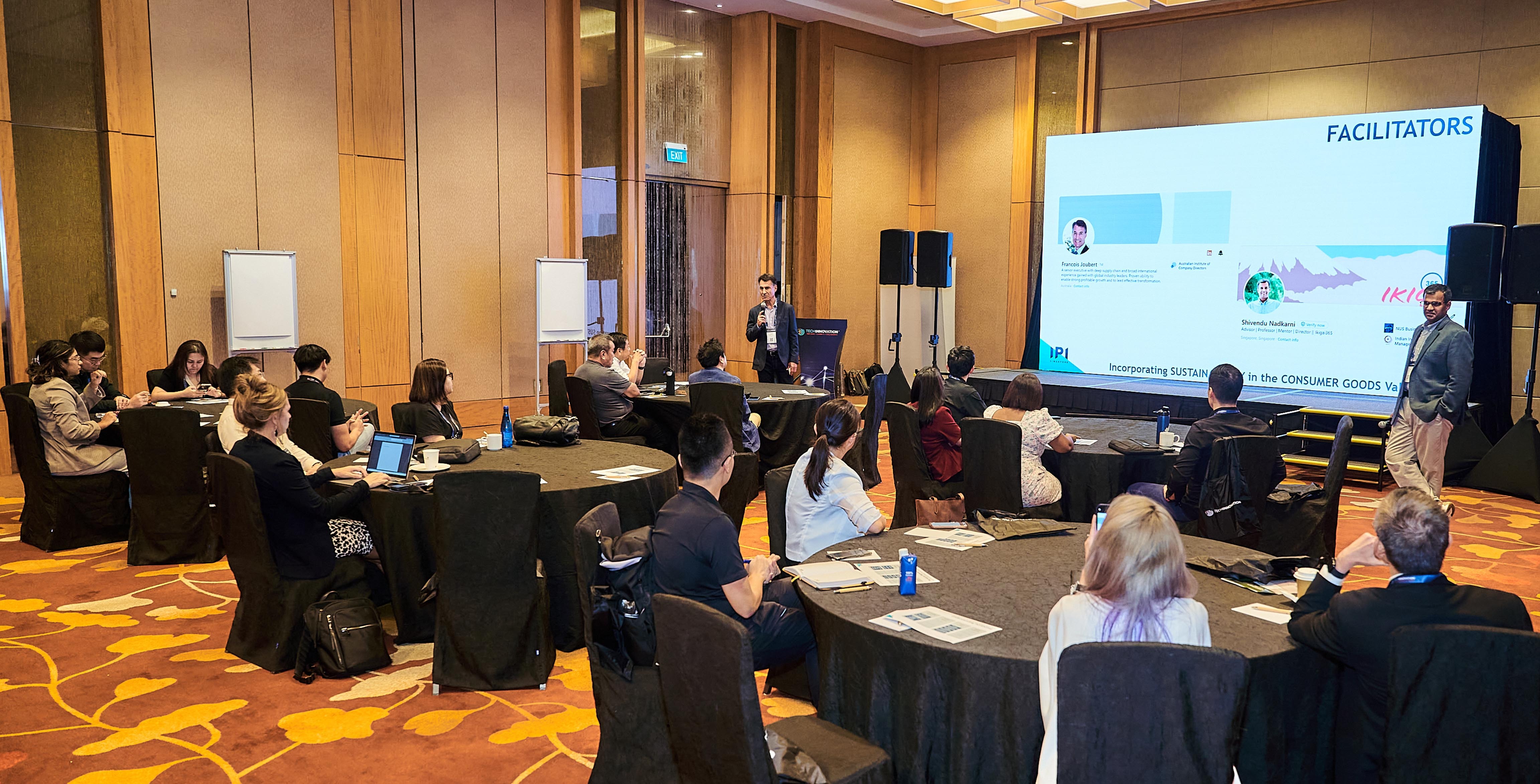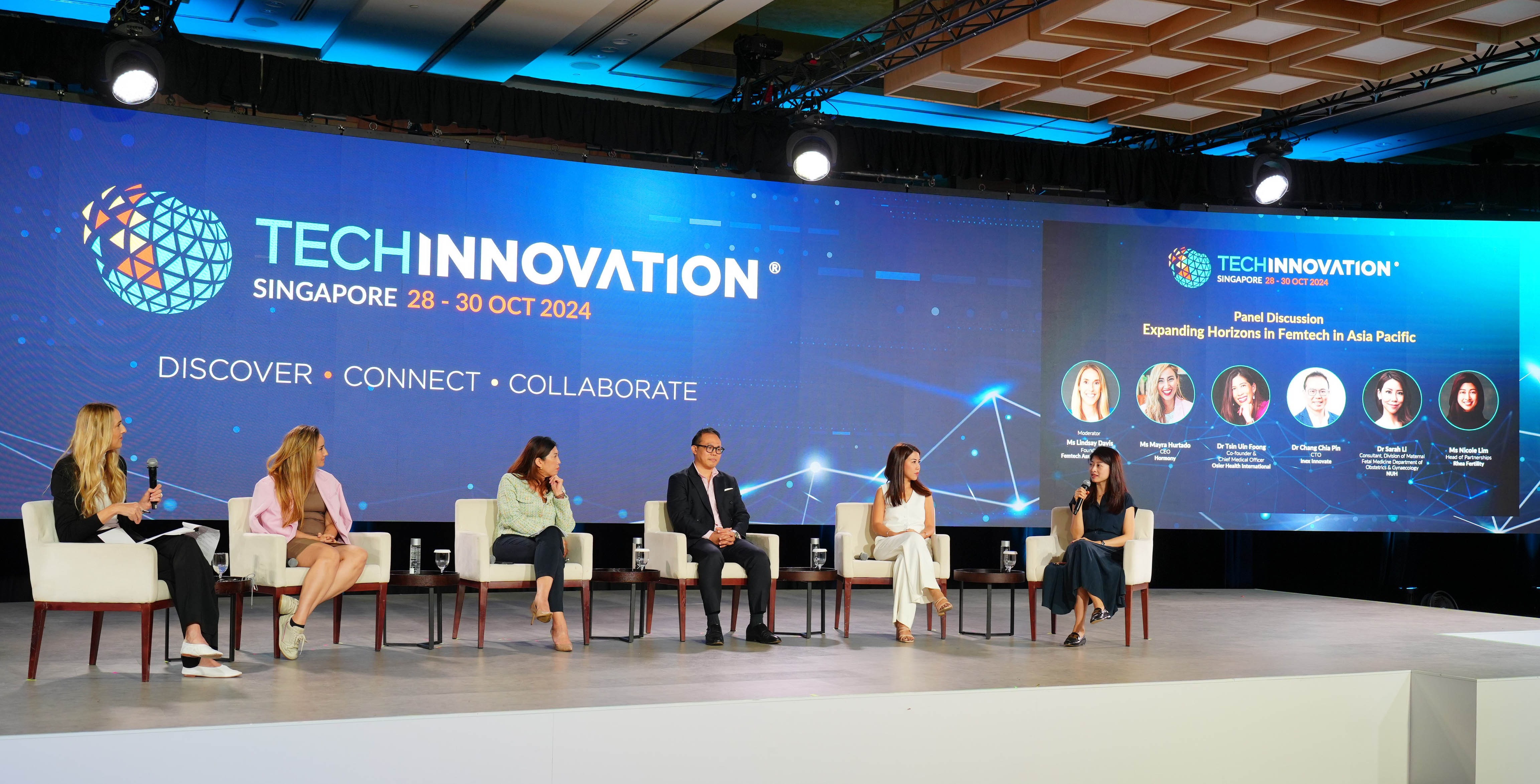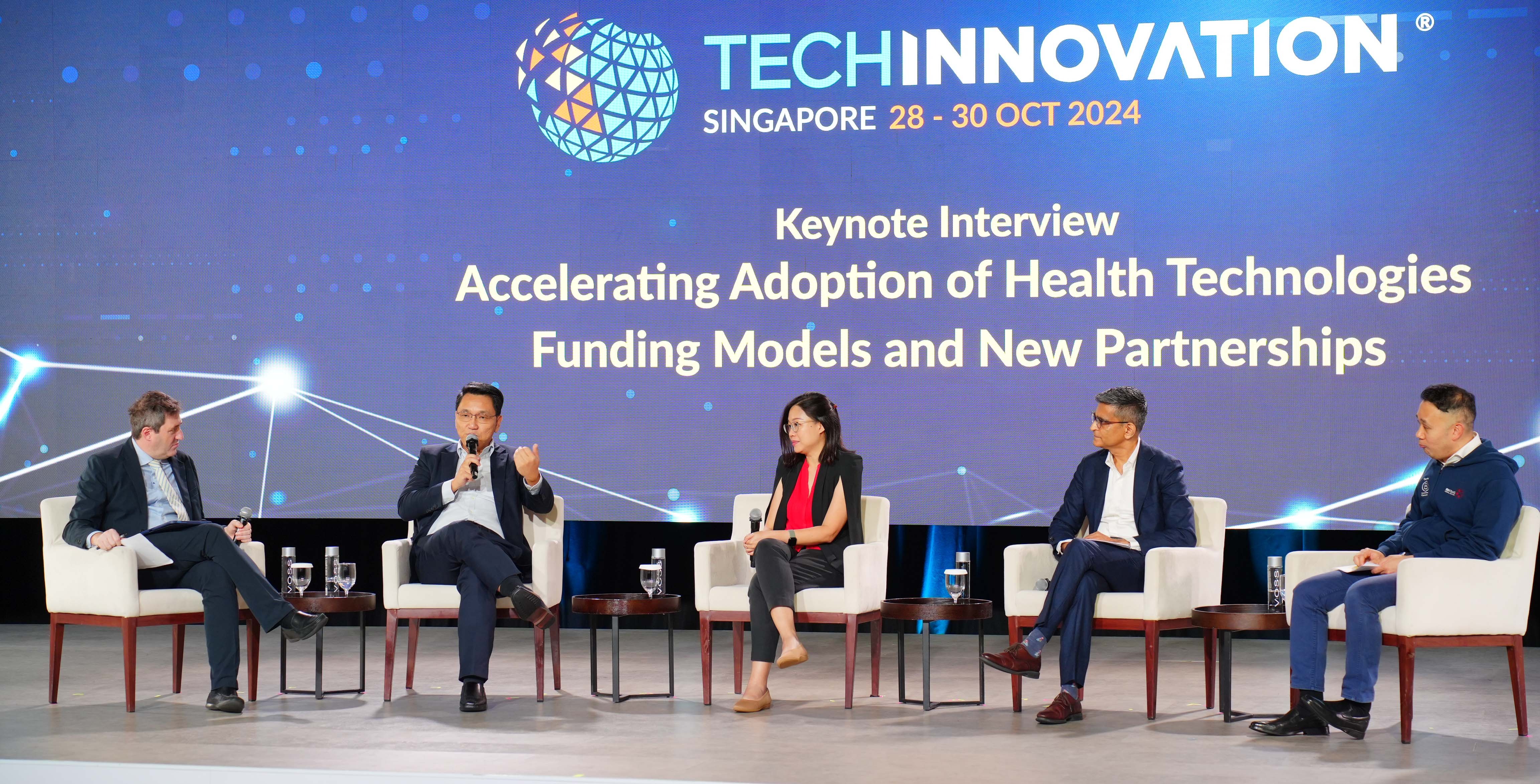TechInnovation 2024 concluded with great success, centered around the theme of Sustainable Urban Living. Over three dynamic days, the event spotlighted Future-Forward Cities, a Future-Ready Food Industry, and Healthcare Horizons through engaging conferences, exhibitions, and networking sessions that sparked impactful collaborations.
With nearly 5,000 delegates and 53 exhibitors from 8 countries, TechInnovation showcased groundbreaking innovations in AI, sustainable technologies, healthcare, and food-tech. Explore daily recaps for expert insights and key highlights shaping a sustainable, future-focused world.
HIGHLIGHTS OF DAY 1
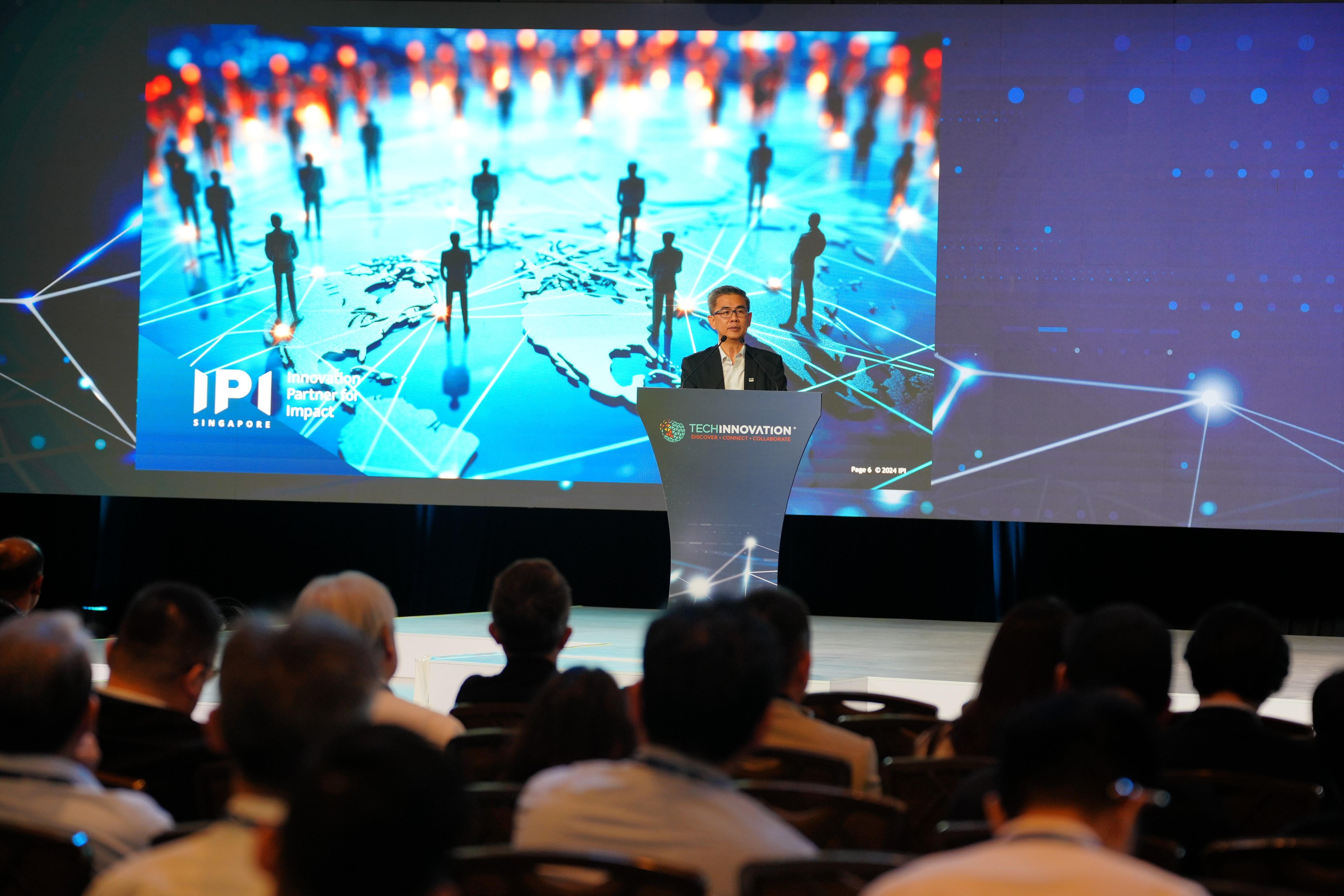
WELCOME ADDRESS BY MICHAEL GOH, COO OF IPI
Michael Goh, COO of IPI, welcomed attendees by emphasising the power of collaboration and innovation. He likened the event to a symphony orchestra, where diverse experts unite to create something greater than their individual contributions. “TechInnovation is more than a conference; it’s a platform to bring diverse minds together to foster transformative collaboration and partnerships,” he said. Additionally, he shared the importance of partnerships. “Collaboration and open innovation are essential pathways to address today’s complex challenges, as they allow companies, especially SMEs, to share resources and expertise. By coming together, they can innovate more quickly, compete on a global scale, and reach new heights of success. Through initiatives like TechInnovation, we are opening doors for like-minded partners to connect, exchange knowledge, and build partnerships that drive impactful solutions."
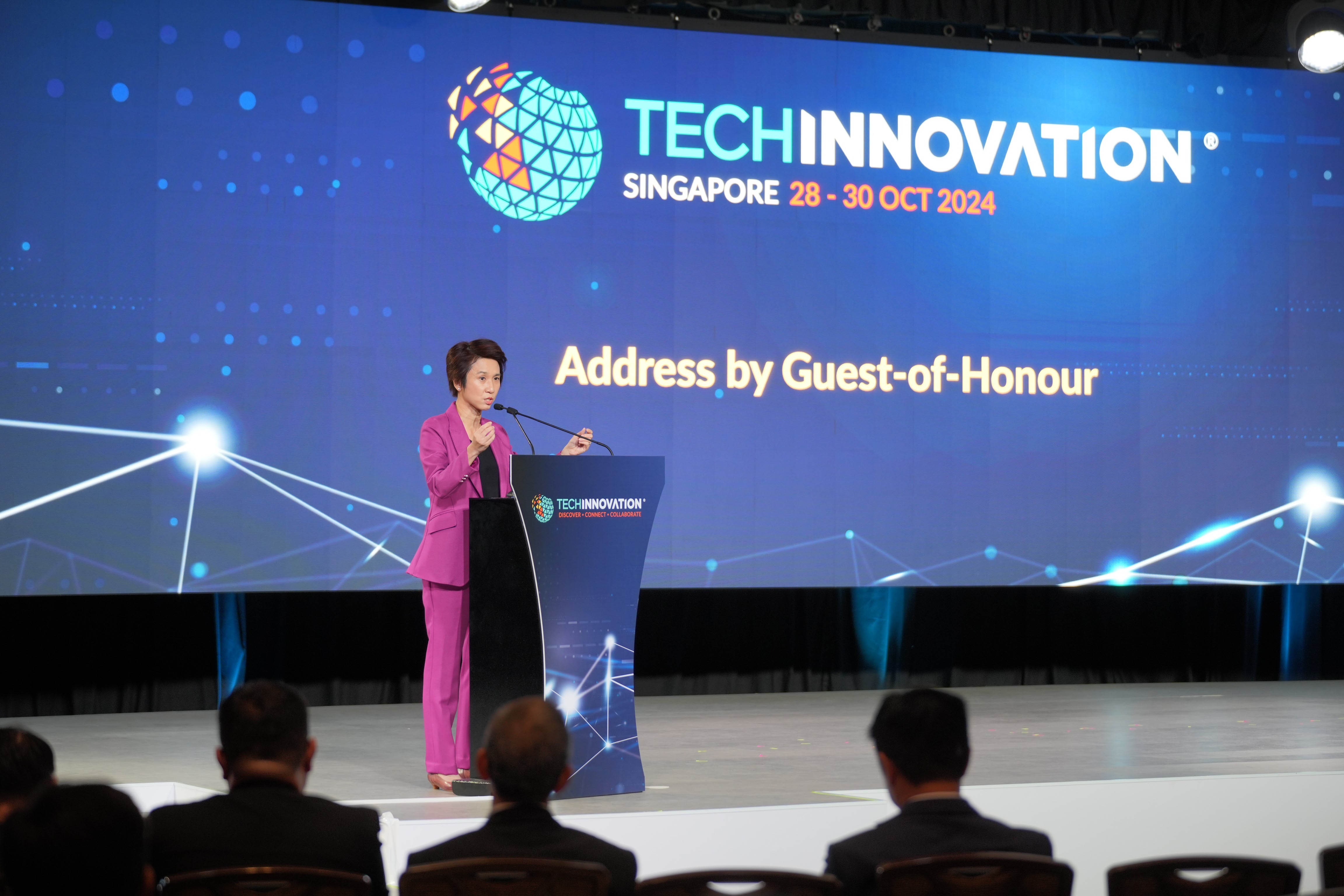
ADDRESS BY SENIOR MINISTER OF STATE, MINISTRY OF CULTURE, COMMUNITY AND YOUTH & MINISTRY OF TRADE AND INDUSTRY
This year, TechInnovation is honoured by the presence of Ms Low Yen Ling, Senior Minister of State, Ministry of Culture, Community and Youth & Ministry of Trade and Industry. She emphasised the vital role of collaboration among government agencies, industry leaders, and investors to drive tech innovation and sustainable urban living. In her address, she highlighted, “The Singapore government is fully committed to supporting our SMEs, empowering them to innovate, grow, and internationalise. The journey towards sustainable urban living really is a collective effort that requires the collaboration of all stakeholders. Together, we can truly catalyse and create a better quality of life in our green city-state."
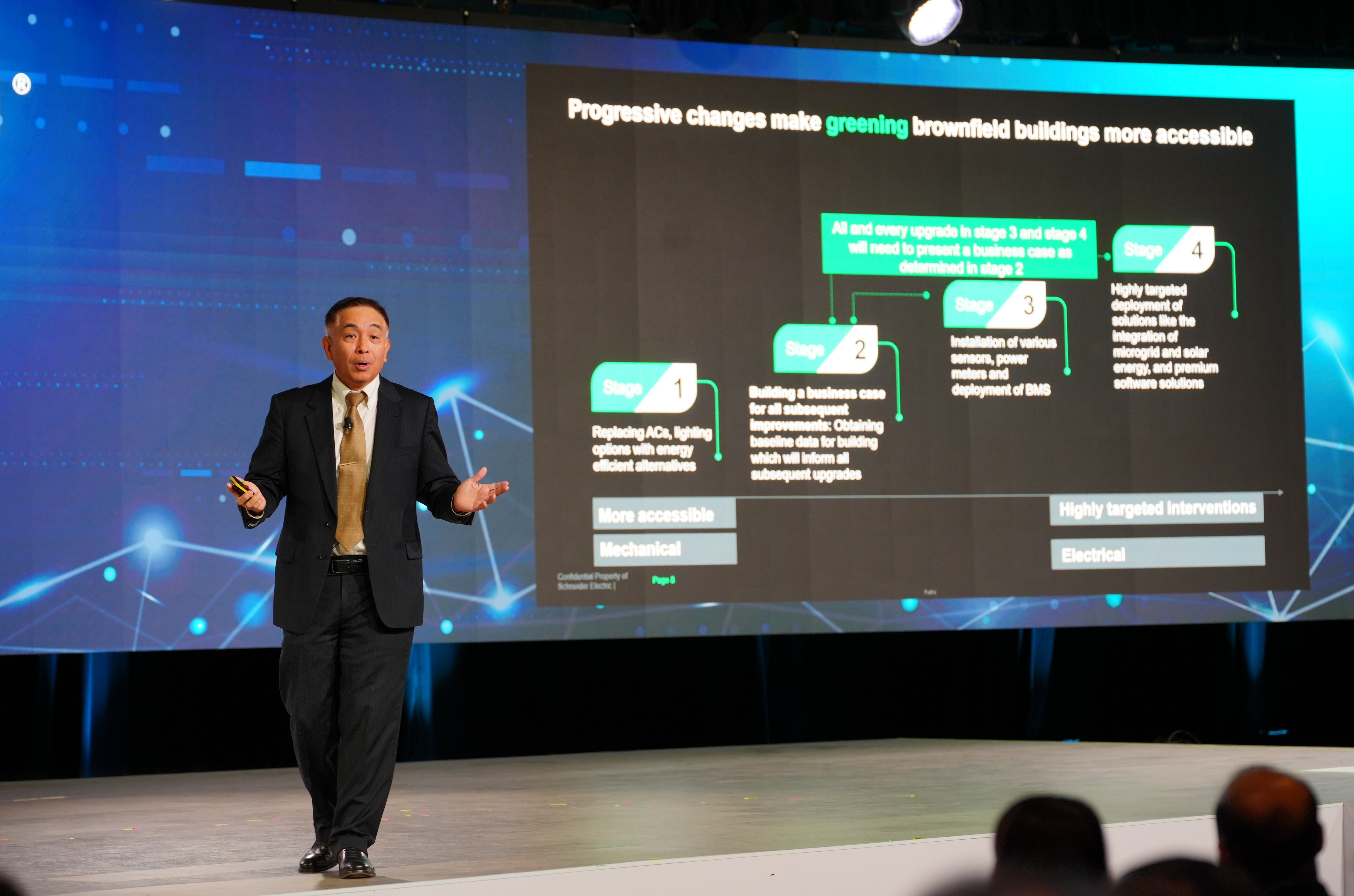
KEYNOTE PRESENTATION: HARNESSING INNOVATION FOR A SUSTAINABLE TOMORROW
Mr Yoon Young Kim, Cluster President, Singapore and Brunei of Schneider Electric, highlighted partnerships and advanced technology as critical to overcoming decarbonisation challenges. Sharing insights from Schneider’s recent research with ISCA, he noted that under 40% of business leaders fully understand scope three emissions, and only 32% feel confident in achieving net-zero goals. To address these challenges, he advocated for stronger cross-industry partnerships and the adoption of digital tools to drive sustainable progress.
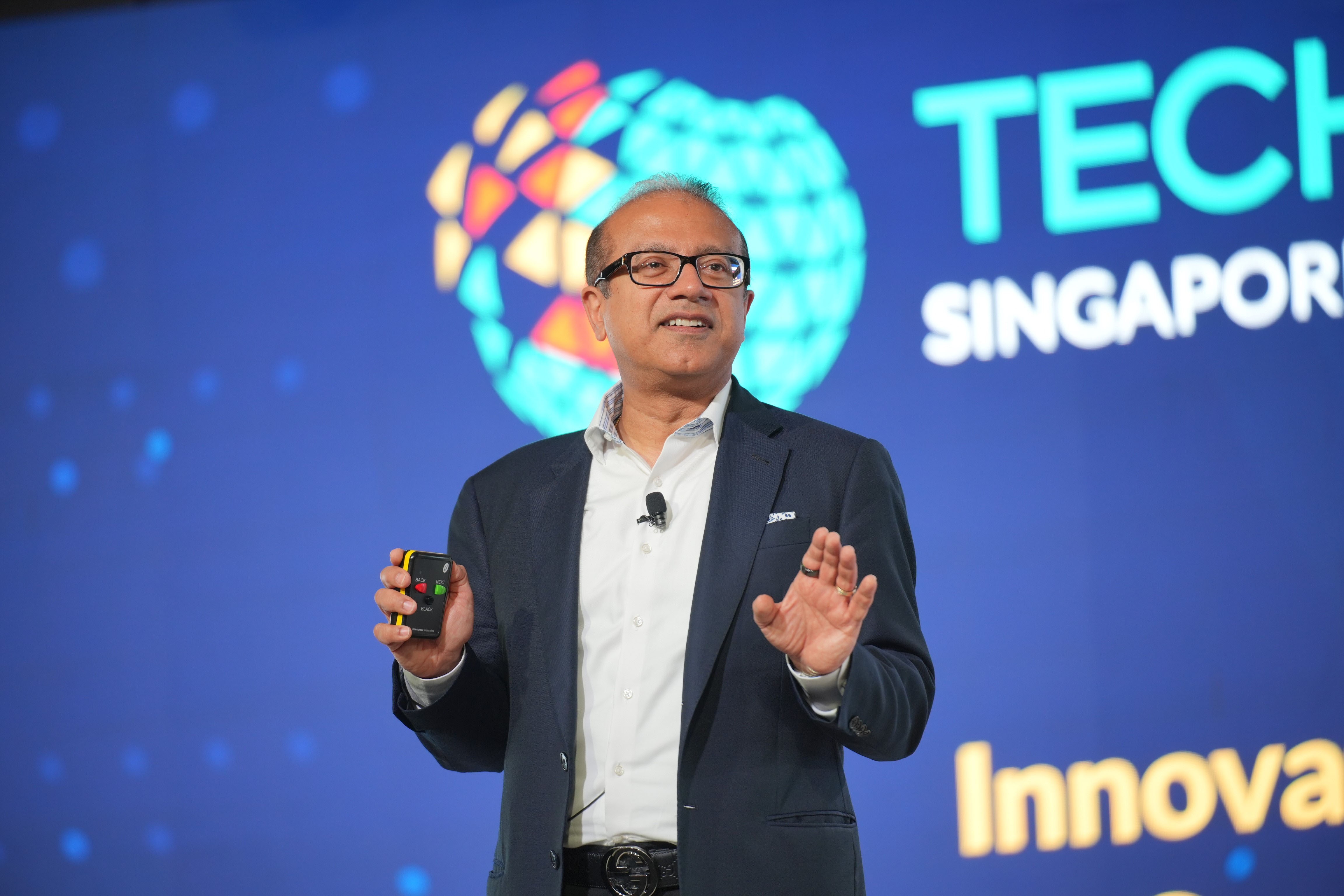
KEYNOTE PRESENTATION: INNOVATION AND IMPACT TO COMPANY’S GROWTH
Mr Vinod Mahboobani, Global Chief Legal Officer at KFC and Pizza Hut, Yum! Brands, Inc., outlined Yum's innovation-driven strategy to enhance operational efficiency and customer experience. By reducing in-person sales and integrating tech systems, the company aims to decrease third-party reliance and improve scalability, setting a new industry standard for reliability and service. He emphasised Yum! Brands' vision to leverage AI, including Voice AI, to drive innovation and cultivate a digital-first mindset across the organisation
|
PANEL DISCUSSION: SUSTAINABLE INNOVATIONS FOR SMART CITIES OF THE FUTURE
(From left: Jeremy Lee (Moderator); Calvin Chung; Lester Leong, Dr. Singh; Kevin Lim) The panel session brought together leading experts to discuss innovative strategies for fostering urban sustainability. Calvin Chung, Assistant CEO of JTC, outlined ambitious targets for the built environment industry, aiming for 80% green buildings, 80% super low-energy new developments, and a significant 80% improvement in energy efficiency by 2030. Kevin Lim, Head of Group Innovation at City Developments Limited (CDL), showcased their achievements in green building, including multiple platinum-rated projects and a commitment to the highest environmental standards. Lester Leong, Co-founder of GUSH, introduced groundbreaking one-coat paint technology designed to lower labour costs and enhance efficiency in construction. Dr. Singh Intrachooto emphasised the critical trends of well-being, biodiversity, circular economy, carbon neutrality, and resiliency in urban development. |
|
|
PANEL DISCUSSION: BUSINESS OPPORTUNITIES AND CHALLENGES FOR FUTURE-FORWARD CITIES
(From left: Elvin Too (Moderator); Kelvin Ong; Wong Hong Wai, Rowena Rawte; Benny Goh) In this session, experts explored sustainable solutions and strategies to tackle common challenges in the urban sector. Kelvin Ong, Business Development Manager of Little Green Ranger, shared their integration of battery generators and renewable energy to minimise diesel reliance. Wong Hong Wai, Innovation Advisor at IPI, provided insights on supporting companies like Little Green Ranger with strategic growth. Rowena Rawte, Global Head of Sustainability, HY M&E Consultancy Services Pte Ltd, discussed deploying digital twin technology globally and highlighted sustainability as an ongoing commitment. Benny Goh, Innovation Advisor at IPI, spoke on regulatory challenges and the reputation of Singaporean firms in green technology. |
|
|
NETWORKING & PITCHING DAY WITH KILSA GLOBAL
KILSA Global, in partnership with the Seoul Metropolitan City, including Seoul Business Agency and Seoul StartUp Hub, showcased 10 innovative companies from South Korea across the realms of digital health, personal care, sustainability, and smart cities. |
HIGHLIGHTS OF DAY 2
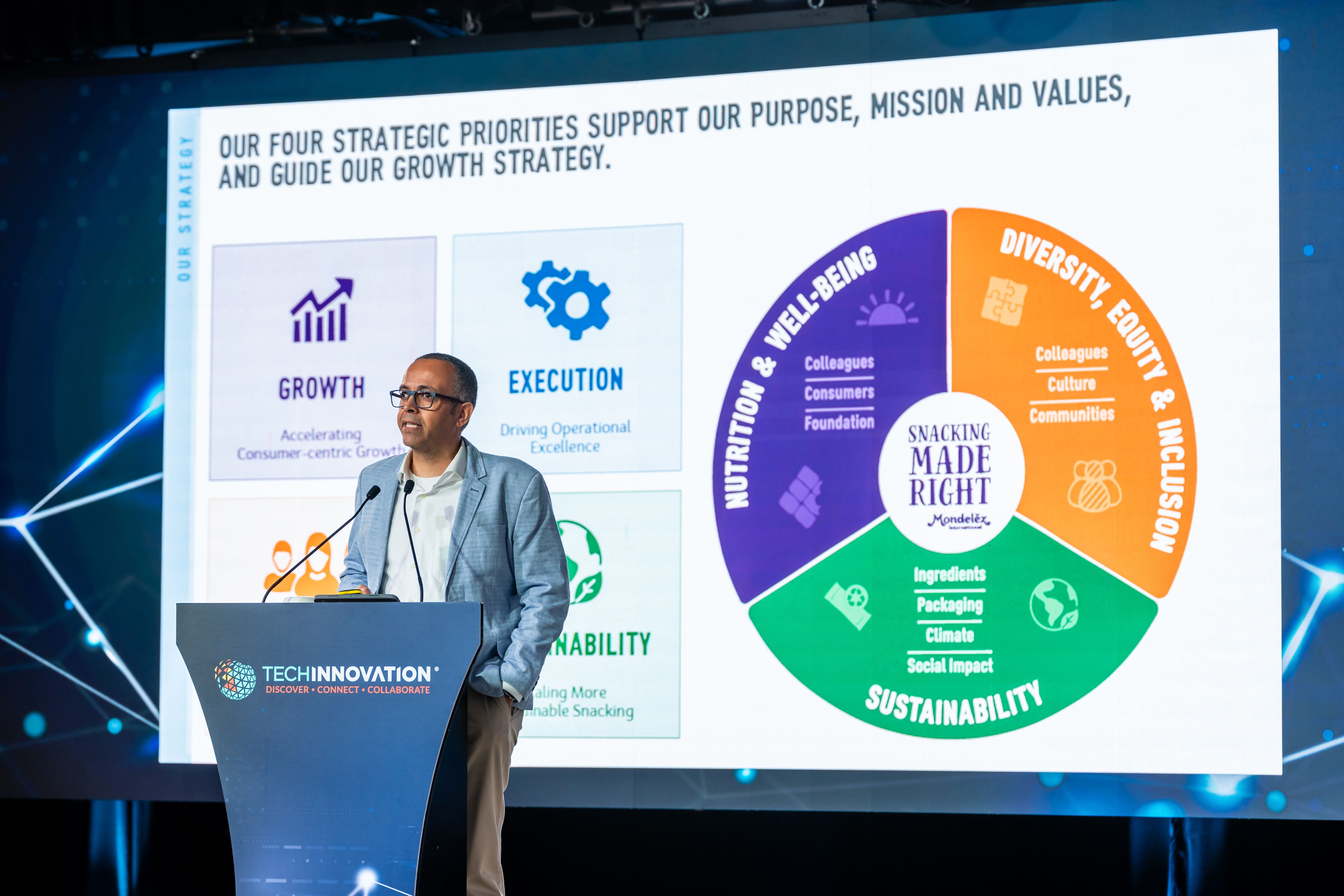
KEYNOTE: IMPORTANCE OF SUSTAINABILITY IN THE FOOD INDUSTRY
Mr Anderson Marinheiro da Silva, Regional Packaging R&D Director of Mondelez International, started his keynote session by emphasising how sustainability is reshaping the food industry by integrating responsible sourcing, carbon reduction, and eco-friendly packaging into everyday business practices. Attendees gained insights into how these changes meet public demand for sustainable options, demonstrating the industry’s commitment to positive, long-term impact. The discussion showcased collaborative efforts across the supply chain, inspiring audiences with tangible steps toward a greener future.
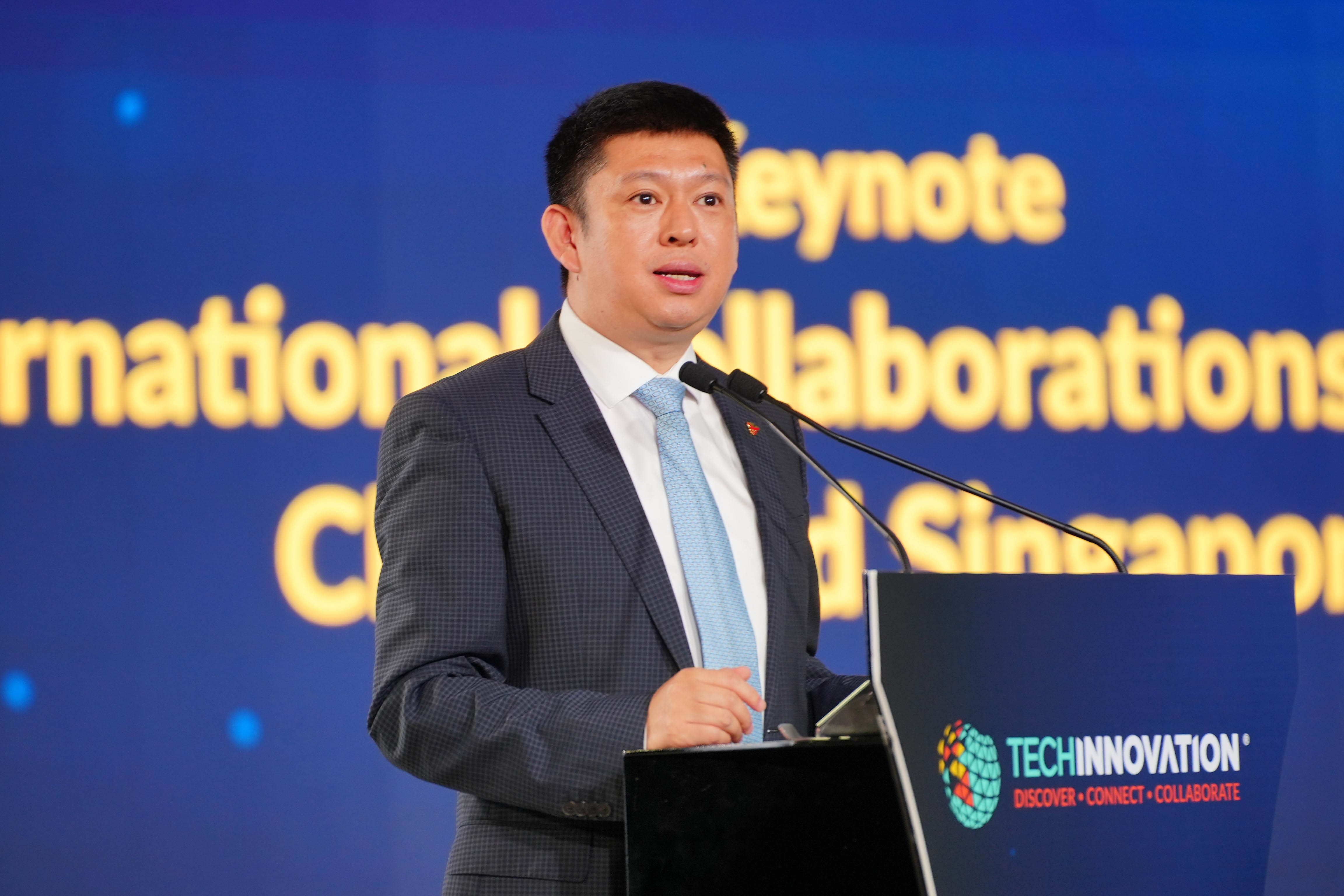
KEYNOTE: INTERNATIONAL COLLABORATIONS BETWEEN CHINA AND SINGAPORE
Mr Shujun Zou, Executive President of Shanghai Eastern Technology Service Corporation, highlighted strategic pathways for businesses entering international markets, with emphasis on research, localisation, partnerships, and compliance. He underscored the critical role of Shanghai-Singapore collaboration in technology transfer, investment, and SME support, particularly within AI, big data, life sciences, and green technology sectors.
|
PANEL DISCUSSION: BEYOND THE BIN - DESIGN AND INNOVATIONS FOR SUSTAINABLE FOOD PACKAGING
(From left: Francois Joubert (Moderator); Lim Tian Wee; Karen Cheah; Low Cheaw Hwei; Ribella Lee; Elton Goh) The session focused on the overarching theme of sustainable packaging, with insights from industry leaders on innovative approaches to reduce environmental impact. Each speaker brought unique perspectives to the discussion: Karen Cheah, Founder and CEO, AlterPacks shared the challenges of consumer acceptance for new, sustainable materials that resemble traditional packaging. Low Cheaw Hwei, Principal Consultant and Designer and IPI Innovation Advisor emphasised the holistic role of packaging in consumer experience and its impact on sustainability through design and functionality. Ribella Lee, Senior Market Research Analyst, Toyo Seikan Group discussed how Japanese consumer behaviour and the ageing population influence sustainable packaging innovations tailored to specific user needs. Elton Goh, Food Market Specialist, Shimadzu (Asia Pacific), explored the relationship between regulatory standards and consumer education in promoting sustainable packaging, stressing the importance of safety and quality. |
|
|
PANEL DISCUSSION: NAVIGATING ENTRY INTO NEW MARKETS
(From Left: Isabella Tan (Moderator); Billy Anugrah; Natasha Chiam; Ren Jun Lim; Fatima AlMubbad) The session focused on strategies for entering new markets, with an emphasis on international expansion. Key topics included market research, localisation, partnerships, regulatory compliance, and intellectual property. Below are the insights from each speaker, tailored to their region or industry, providing practical guidance for businesses to adapt and succeed in diverse markets. Fatima AlMubbad, Head of Bahrain EDB, Singapore and SEA, emphasised the unique demographic and supply chain gaps in the Gulf Cooperation Council, highlighting opportunities for businesses, particularly in the food industry. Billy Anugrah, Trade Attaché, Embassy of the Republic of Indonesia in Singapore, discussed the diverse market potential across Indonesia's regions and encouraged businesses to leverage the market insights from embassies. Natasha Chiam, Founder and Managing Director, Creme Concepts, stressed the importance of local consumer engagement, continuous market research, and partnerships for sustained brand growth. Ren Jun Lim, Principal, Baker & McKenzie.Wong & Leow, advised on protecting intellectual property as a strategic asset and navigating local regulations with professional guidance. |
|
|
STRATEGIC ALLIANCES - JAPANESE CORPORATES DRIVING GLOBAL INNOVATION
This session focused on how Japanese companies partner with Singapore’s SMEs and startups to innovate globally. Divided into two panels, the session highlighted: How Panasonic tapped on their co-creation model with IPI and the initiative of JCTI Launchpad, detailing challenges like resource and cultural gaps, and how they adapted technology to fit local needs. The second panel, "From Isolation to Collaboration: Overcoming Challenges in Global Innovation," showcased how companies like Ricoh, Toyo Seikan, and Mitsui Chemicals leverage Singapore as a regional launchpad. They discussed their collaborative efforts across healthcare, biotechnology, advanced materials, AI-driven facilities management, and IoT energy solutions, highlighting how these companies address challenges in scaling innovations globally through strategic local partnerships and co-creation. |
|
|
MASTERCLASS: INCORPORATING SUSTAINABILITY INTO CONSUMER GOODS VALUE CHAIN
Innovation Advisors Francois Joubert and Shivendu Nadkarni from IPI led a masterclass highlighting how sustainability redefines the consumer goods industry through strategic innovation. They guided attendees through essential themes like understanding sustainability potential, reframing stakeholder roles, creating measurable impact, and planning actionable pilots. Participants walked away with insights into aligning business practices with consumer demand for eco-conscious choices and learned practical steps for engaging stakeholders, as well as an introduction to the complex process of designing impactful pilot projects. The session underscored collaborative efforts across the value chain, inspiring attendees with a roadmap to drive meaningful, sustainable change. |
HIGHLIGHTS OF DAY 3
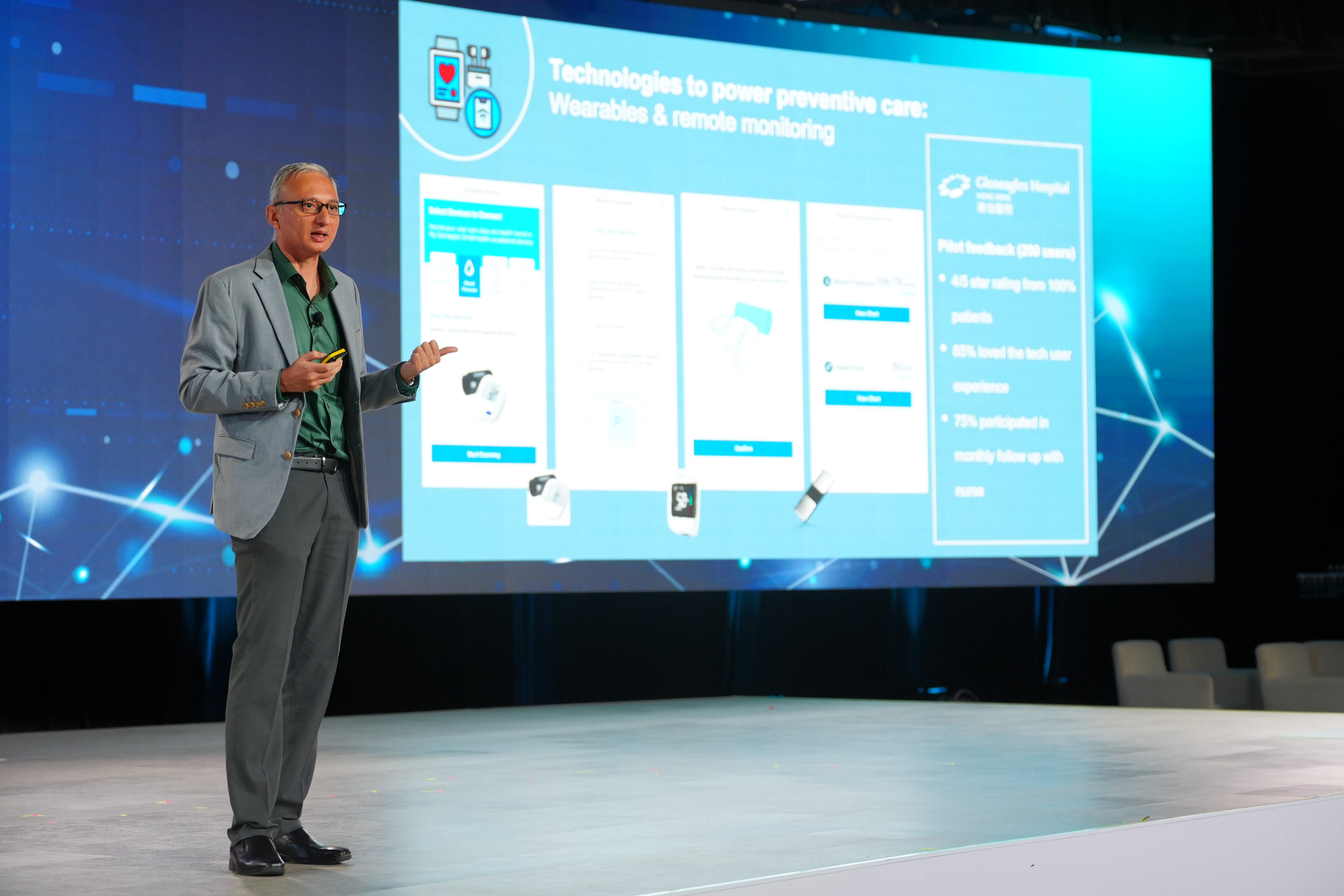
KEYNOTE: FRONTIERS OF HEALTHCARE
Saurabh Patel addressed sustainability challenges within a treatment-focused healthcare system, underscoring preventive care and the Healthier SG programme's role in improving public health through proactive management and community partnerships. He discussed the impact of telemedicine and remote monitoring in empowering patients to manage their health, stating, "One key driver in advancing preventive healthcare is wearable and remote monitoring technology. It enables doctors to continuously track your health data, offering real-time insights into various health parameters."
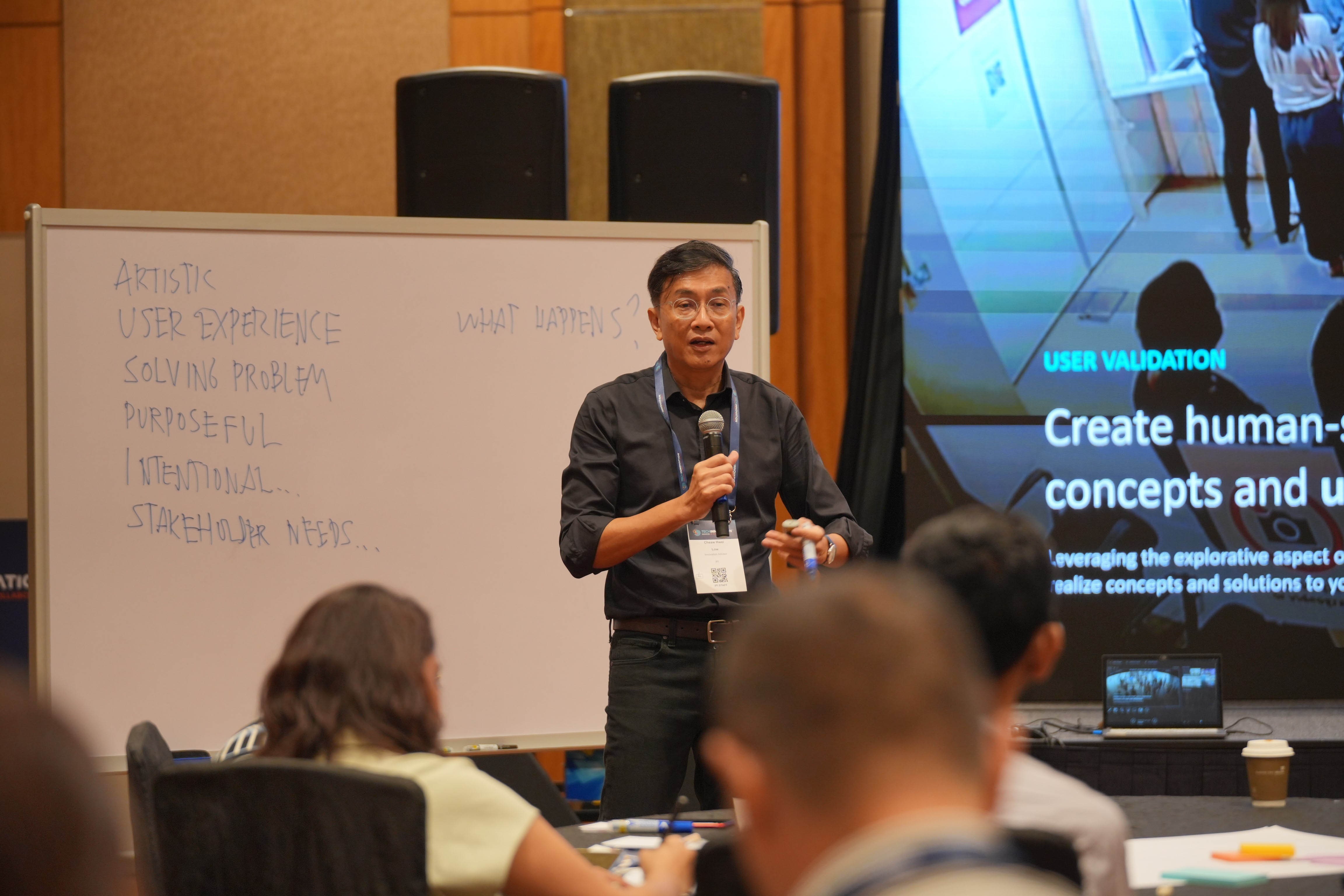
MASTERCLASS: MASTERING USER-CENTERED INNOVATION WITH DESIGN THINKING
This masterclass, led by Cheaw Hwei Low, IPI’s Innovation Advisor, emphasised the powerful role of design in driving innovation for SMEs. Participants explored how integrating design principles into business strategies simplifies challenges, fosters collaboration, and enhances customer experience, encouraging sustainable growth through product and solution innovation.
|
PANEL DISCUSSION: EXPANDING HORIZONS IN FEMTECH FOR ASIA PACIFIC
(From left: Lindsay Davis, Founder, FemTech Association Asia; Mayra Hurtado, CEO, Hormony; Dr. Tsin Uin Foong, Co-Founder & Chief Medical Officer, Osler Health International; Chia-Pin Chang, Group General Manager and Chief Technology Officer, INEX Innovate Pte Ltd; Dr. Sarah Li, Consultant, Division of Maternal Fetal Medicine, Department of Obstetrics & Gynaecology, National University Hospital; Nicole Lim, Head of Partnerships, Rhea Fertility) Lindsay David, the moderator, introduced the concept of female technology (femtech) to the audience, highlighting Asia’s femtech industry as the third-largest globally, representing approximately 14% of femtech businesses worldwide. The panel focused on advancements in women’s health technology across Asia Pacific, emphasising the importance of accessible, personalised solutions and inclusive designs to connect healthcare systems. Panellists highlighted the need for partnerships across Southeast Asia to overcome cultural and regulatory barriers and expand access to innovations that empower women and build healthier communities. |
|
|
PANEL DISCUSSION: BUSINESS OPPORTUNITIES AND CHALLENGES FOR FUTURE-FORWARD CITIES
(From left: Leo Lewis, Bureau Chief, Financial Times’ Tokyo; Hong Huei Lee, Co-founder and COO, Foundation Healthcare Holdings (FHH); Rachel Hong, Founder and Chief Technology Officer, Meracle; Aniruddha Patil, Unit Head, Health and Education Investments, Asian Development Bank; Johan Rozali-Wathooth, Founder and CEO, Bintang Capital Partners) This session highlighted approaches to support health technology growth in Southeast Asia, especially for older adults and rural communities. Panellists discussed how public and private sectors, impact-focused investors, and insurance options could help fund preventive health services, benefitting community health. They emphasised the value of improved data-sharing and flexible regulations to make health innovations more affordable and widely available, promising better, longer-lasting care for people across the region. |
For enquiries related to TechInnovation 2025, please contact us at [email protected]
